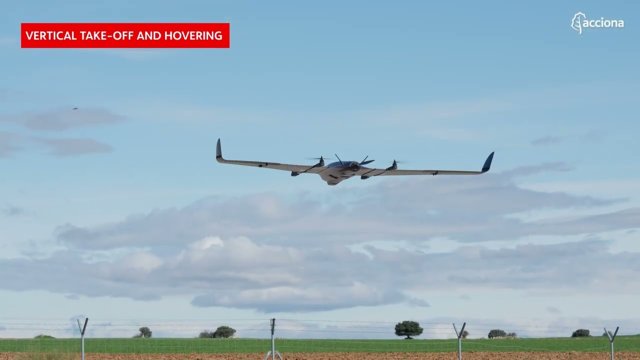For the Panoptis project, researchers from the faculty of ITC finished two pilots for detecting road abnormalities. After extensive testing at Twente airport, the drone has been tested above real roads in Spain and Greece. In the future, the drone will fly besides road infrastructure and monitor different typologies of anomalies such as car accidents, landslides and other objects obstructing the lane.
The pilots took place in operational conditions between Barcelona and Madrid and Thessaloniki and Athens. There, the Panoptis drone performed the road monitoring tasks in real-time, something not many drones can do. “Monitoring in real-time is quite challenging”, said Francesco Nex, Adjunct Professor in Earth Observation Science, “We’ve been working with several limitations. Firstly, the monitoring system needed to generate both images and georeferenced 3D point clouds which is difficult in real-time. As drones have a limited payload, we could only use small and lightweight processors which have less processing power than complete workstations.”
Optimisation
The process of generating the images and 3D point clouds has been optimised in the last year of the project. The drone is now able to execute different tasks in parallel, but can also execute those tasks in different locations. “The object detection is still performed on-board, but the 3D mapping is outsourced to a local network on the field”, explains Nex. The data is combined in the air and only the useful information is streamed to an external station on the ground.
Communicating to ground station
Communication to the external station is often the bottleneck. “The speed of the connection limits us. 4G is good, but still not optimal”, says Nex. Using a 5G connection could represent a further step forward in the near future. 5G can reach speeds 20 times faster than 4G, which should remove the communication bottleneck the team is currently facing.
More information
Panoptis is a consortium of, among others, Airbus, the National Technical University of Athens, Acciona (Spanish infrastructure company), Egnatia Odos (Greek infrastructure company) and the Faculty of ITC of the University of Twente. The purpose of the project is to improve the resilience of road infrastructures and ensure reliable network availability under unfavourable conditions. Adjunct professor Francesco Nex, professor Norman Kerle and Sofia Tilon are involved in the project. Drone tests are also performed thanks to the support of the GeoScience Lab of the Faculty ITC.
More recent news
 Fri 12 Dec 2025Retrospective of the UT Climate Event 2025
Fri 12 Dec 2025Retrospective of the UT Climate Event 2025 Fri 5 Dec 2025Transforming urban policy for a healthier and safer Enschede (and other cities)
Fri 5 Dec 2025Transforming urban policy for a healthier and safer Enschede (and other cities) Fri 28 Nov 2025ITC PhD Publication Award 2025 Ceremony
Fri 28 Nov 2025ITC PhD Publication Award 2025 Ceremony Mon 10 Nov 2025Dutch spinoff launches groundbreaking global flood forecasting tool
Mon 10 Nov 2025Dutch spinoff launches groundbreaking global flood forecasting tool Wed 5 Nov 2025New Geoversity course on Geospatial Auditing launched in collaboration with the Netherlands Court of Audit
Wed 5 Nov 2025New Geoversity course on Geospatial Auditing launched in collaboration with the Netherlands Court of Audit


